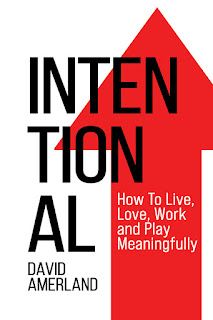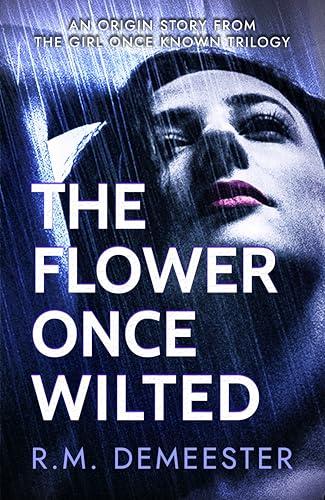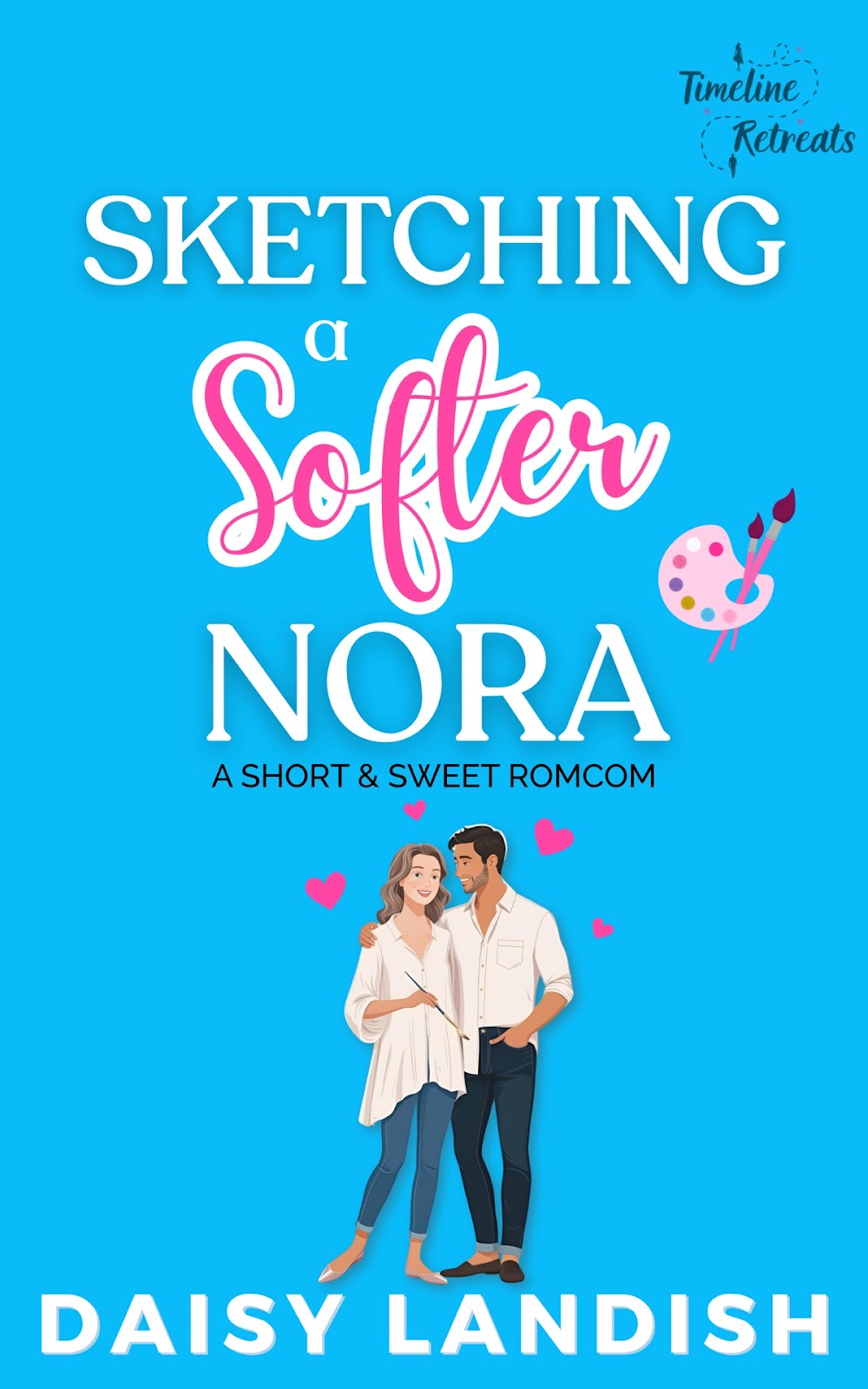Intentional: How to Live, Love, Work and Play Meaningfully
by David Amerland
GENRE: Non-fiction/smart book
BLURB:
Live your life the way you want to. Manage stress better. Be more resilient and enjoy meaningful relationships and better health. We all want that. Such life leads to better choices, better jobs, loving romantic partners, more rewarding careers and decisions that are fully aligned with our aims.
What stops us from getting all that is the complexity of our brain and the complicated way in which the external world comes together. The misalignment between the internal states we experience and the external circumstances we encounter often leads to confusion, a lack of clarity in our thinking and actions that are not consistent with our professed values.
Intentional is a gameplan. It helps us connect the pieces of our mind to the pieces of our life. It shows us how to map what we feel to what has caused those feelings, understand what affects us and what effects it has on us and determine what we want, why we want it and what we need to do to get it.
When we know what to do, we know how to behave. When we know how to behave we know how to act. When we know how to act, we know how to live. Our actions, each day, become our lives. Drawn from the latest research from the fields of neuroscience, behavioral and social psychology and evolutionary anthropology, Intentional shows you how to add meaning to your actions and lead a meaningful, happier, more fulfilling life on your terms.
Excerpt:
Because all this is serious I can afford to be flippant, though as you will see even my flippancy has a very serious intent. So, I will add here that the one ‘rule’ we all need to keep in mind is that favourite of William S. Burroughs’ from his Naked Lunch “Nothing is true; everything is permitted”. Burrough, of course, borrowed this from Vladimir Bartol, who used it in his novel Alamut. Bartol, himself borrowed it, and slightly changed it in the process, from the teachings of Hassan-i Sabbah who was the founder of the Order of the Assassins, historically known as the Nizari Assassins. The tale, writings and doctrine of the Order was incorporated in the storyline of the popular video game Assassin’s Creed which is where I first came across it and filed it away for future reference which brings us to here and now. You reading what I’ve written.
What do we, what can we learn from this? That life is circuitous but the circuit has polygonal junctures with cultural jumps and bends that require an open mind and a thirst for cultural learning in order for the metaphorical dots to connect? Or, that nothing is truly original, that everything is borrowed from somewhere else and made to fit the moment and its time?
Both, I’d argue. If you are truly living and if you truly feel alive you are aware of both context and history. Moment and time. Alamut was written as an implied rebuke to Mussolini’s fascism. Naked Lunch is a chronicle of the messiness of life and its often unplanned trajectory where the brain makes sense of basically senseless moments of existence. This book is about learning to behave in ways that help you get more out of your life.
Interview with David Amerland
What book that you have read has most influenced your life?
I was about 13 when I read Dune by Frank Herbert. Though, typically, through a series of serendipitous and, in retrospect, crazy lucky events I picked up The Children of Dune read that first, and then had to hunt for Dune and red the trilogy from the beginning. Fiction is important because it allows the brain to formulate internal models of the world and run scenarios which do not yet exist outside our head. That, however, ends up informing our beliefs and shoring up our values which then guide our behavior. Dune, and the attendant five more books that followed it are about human responsibility. They are, now that I think deeply about it, about intentionality in the way we approach life and living. They are about meaning in every thought, every decision and every action. It’s a book that impressed me a lot and formed some of the values that guide my life.
Tell us a little about yourself? Perhaps something not many people know?
I have an almost pathological dislike of abuse of power of any sort. It really triggers me. A lot of people think I am an establishment player. I have worked for large corporations and I have consulted for Fortune 500 companies. Before the pandemic I looked like a corporate globetrotter who spent each month on a different continent, let alone a different country on speaking gigs. I am quite antithetical to institutionalized power. I do not defer to people just because they have a title or hold a position. I see a lot of the things I do, when I consult, as working to change work and life from the inside out. I will always question authority.
Can you tell us something about your book that is not in the summary?
Like every book Intentional: How to Live, Love, Work and Play Meaningfully truly comes to life for the reader when we get to details that are human and humanizing and intimately relatable. In the chapter on Behavior, for instance, we learn of Viktor Frankl who survived internment in Nazi concentration camps, during WWII, who was able to survive when others died because he managed to find meaning in life, even while he was incarcerated, controlled nothing of what happened to him and could easily have been killed any day.
Neuroscientific research shows that the moment we find meaning in our actions and meaning in our life we reassess the energetic cost of those actions. Our motivation, the external, observable part of a complex, neurobiological process; changes. We experience less stress. Cognitively we operate at a higher level. We find it easier to focus and be genial to others.
The brain is a meaning-making machine and this is something we don’t obviously think about or discuss a lot because we accept the statement that “the world has meaning” at face value. The world does have meaning, but that meaning is a little different for each one of us and to find it we must work for it. No one else is going to do that work on our behalf.
When writing a book do you find that writing comes easy for you or is it a difficult task?
Thinking about writing is the easiest thing in the world. I find myself coming up with seemingly perfect sentences and paragraphs and illuminating insights when I am in the shower, or walking my dog or out for a run by the sea. The moment I sit in front of my laptop writing is as hard as breaking rocks. My brain feels squeezed, by body tells me that it’s cold, hungry or sore. At the back of my mind the itch to call a friend, check out Twitter or take a ‘quick’ break and play a video game begins to acquire more and more force which means I need to allocate more internal resources to resist it.
I am on my 18th book and each time the process is no easier and, I love writing. I love what I do. I know, of course, why it is so hard. Our brain has been formed to help us survive by avoiding energy-intensive tasks. It tries to keep us locked within our own perceived comfort zone because then it can more easily predict the next moment. It needs to predict the next moment in order to be able to see immediate threats and keep us safe. Writing a book is not just an energetically expensive task (from a mental point of view), it is also a risky one in terms of reputation, identity, social status – all the layers we use in order to build the construct we call “self” and show it how to behave.
That’s why writing is so difficult. It’s like a juggling act upon a tightrope. There are just so many ways you can fail despite putting in a massive amount of effort. And you can fall off completely and disappear, your career ended.
What is your favorite childhood book?
I grew up surrounded by books. I was lucky enough to have books read to me before I could read and the moment I could read I could pretty much read whatever I liked thanks to virtually non-existent parental supervision.
I read Lady Chatterley’s Lover when I was barely old enough to even comprehend what a class struggle actually was.The Volga Boatman became a favorite of mine when I was seven or eight. It’s All Quiet On the Western Front hit me really hard when I was about ten. I came to childhood books like Jonathan Swift’s Gulliver’s Travels and Hans Christian Andersen’s fairy tales as a young adult who was reading them for the allegorical truths they contained and the social models they hide in their structure. So, my childhood reading was all messed up. I didn’t for instance, hear of Winnie the Pooh until I was well past the age when I should have heard about it. So, as a young child, my favorite books were James Daugherty’s Daniel Boone and James Fenimore Cooper’s The Last Of The Mohicans.
What were your goals and intentions in this book, and how well do you feel you achieved them?
Every book I write, in its 30,000ft summary answers a single question. In Intentional: How to Live, Love, Work and Play Meaningfully the question was “How do we behave in the many different circumstances we encounter in our life?” To answer that for the reader I took a modular approach to all the traits and attributes we need: grit, attitude, motivation and so on. Does it help my readers better understand how to behave so that they get the positive outcomes they seek in their life? Ultimately that can only be answered by the readers themselves. I know that I worked to the fullest of my ability to make this happen. I did not take any shortcuts in my research or any detours in my writing. So, from start to finish, I remained steadfast in my focus on this goal. But how successful I am in this, ultimately, is the test of my skill as a writer and that can only be answered by my readers.
AUTHOR Bio and Links:
David Amerland is a Chemical Engineer with an MSc. in quantum dynamics in laminar flow processes. He converted his knowledge of science and understanding of mathematics into a business writing career that's helped him demystify, for his readers, the complexity of subjects such as search engine optimization (SEO), search marketing, social media, decision-making, communication and personal development. The diversity of the subjects is held together by the underlying fundamental of human behavior and the way this is expressed online and offline. Intentional: How to Live, Love, Work and Play Meaningfully is the latest addition to a thread that explores what to do in order to thrive. A lifelong martial arts practitioner, David Amerland is found punching and kicking sparring dummies and punch bags when he's not behind his keyboard.
Email & Social Media Accounts
Reach David via email
Twitter ~ Medium ~ LinkedIn ~ YouTube ~ Instagram
Represented by The Knight Agency
For Goodreads Reviews and where to buy the book follow this link: Author Website












%20by%20Willow%20Thorne.jpg)


































3 comments:
Thank you so much for hosting this and thank you for some really awesome questions that made me think deep.
Thanks for hosting!
Sounds like a great book.
Post a Comment